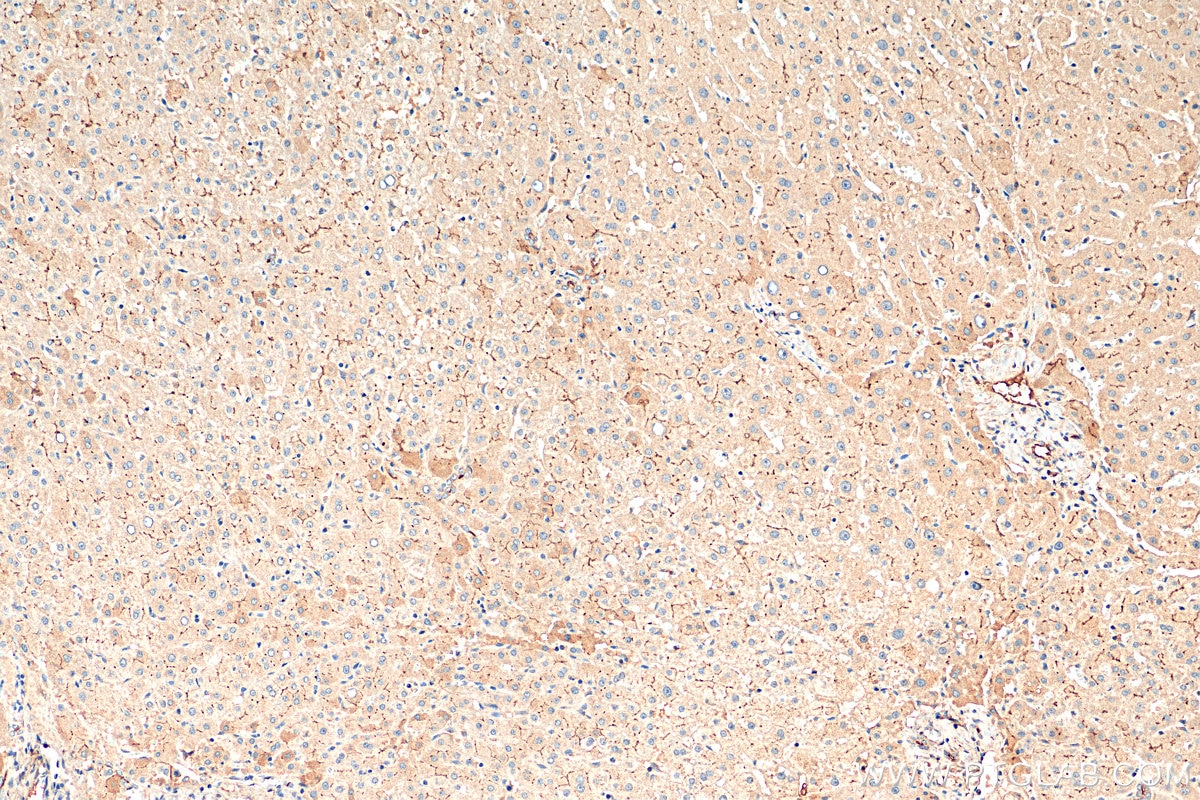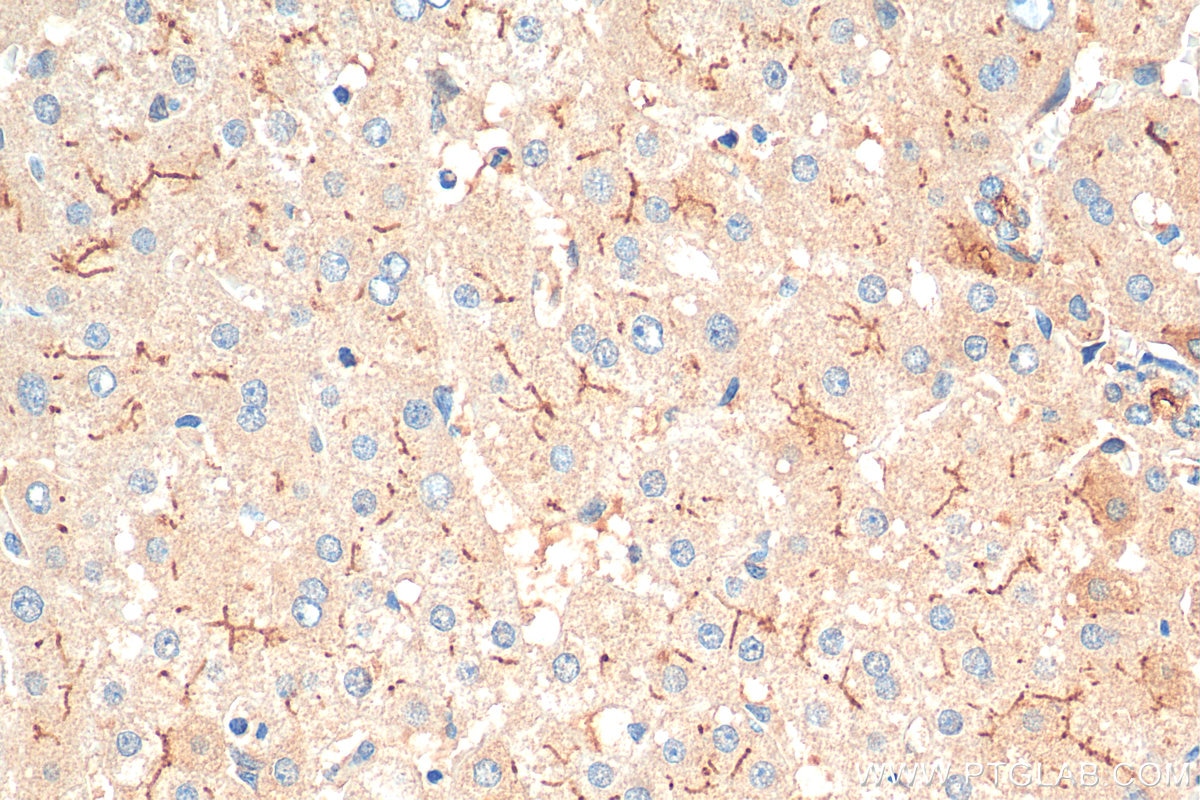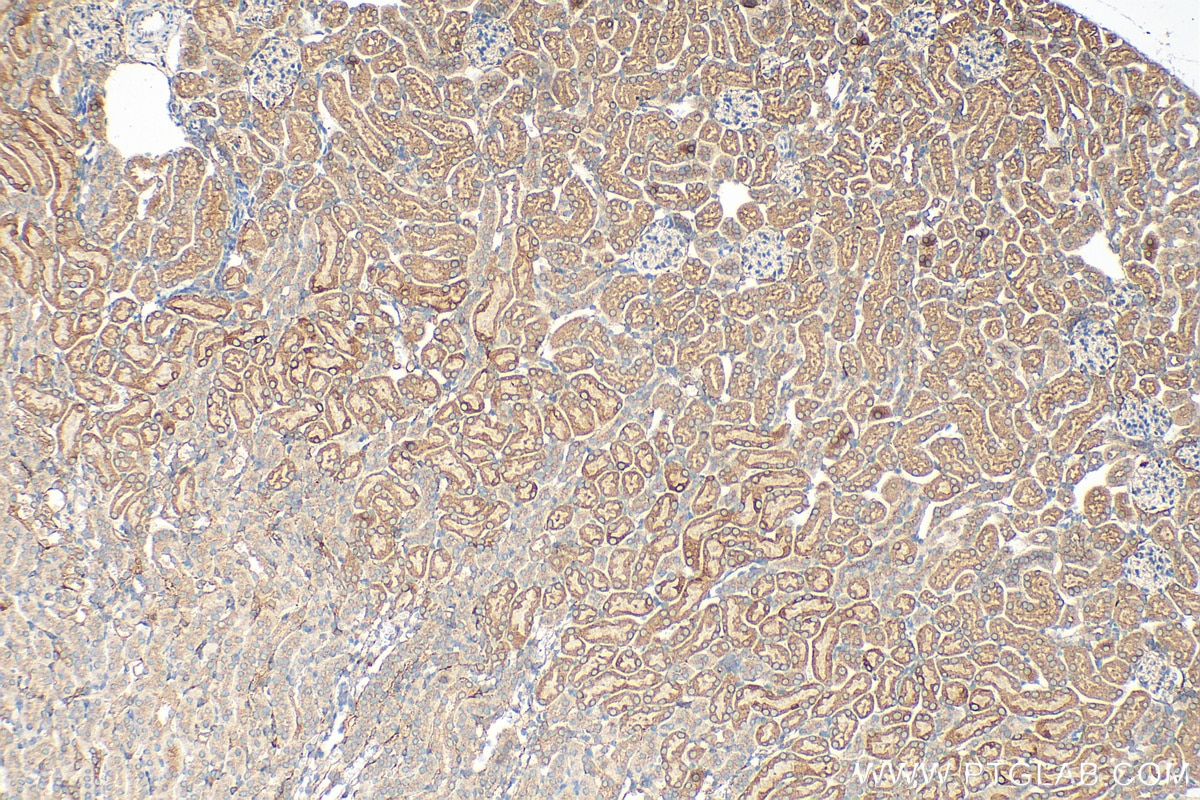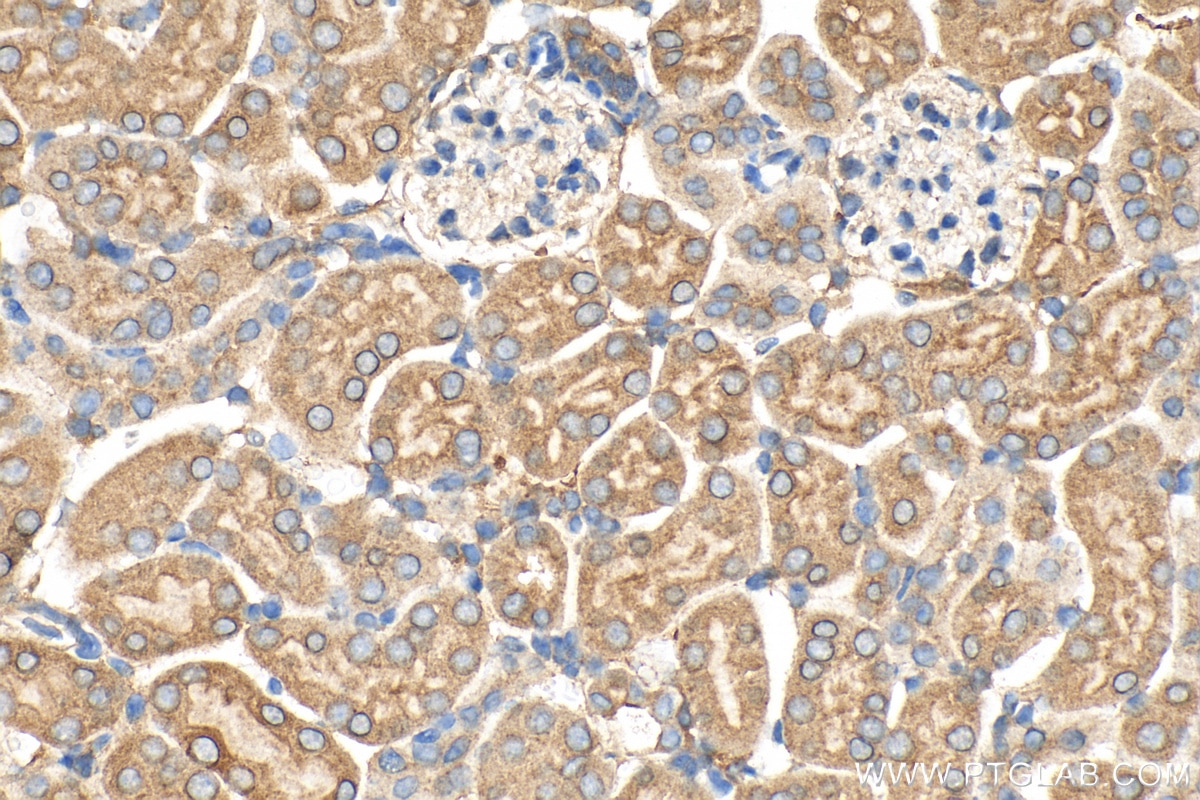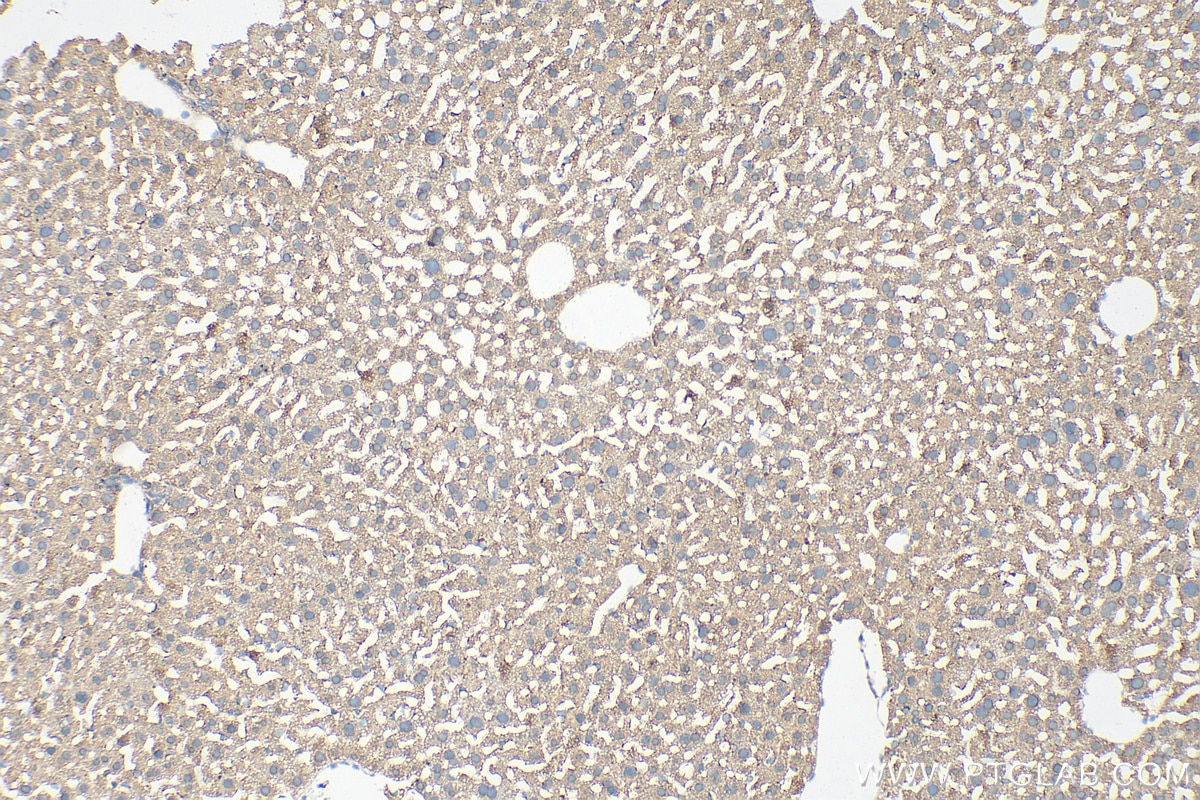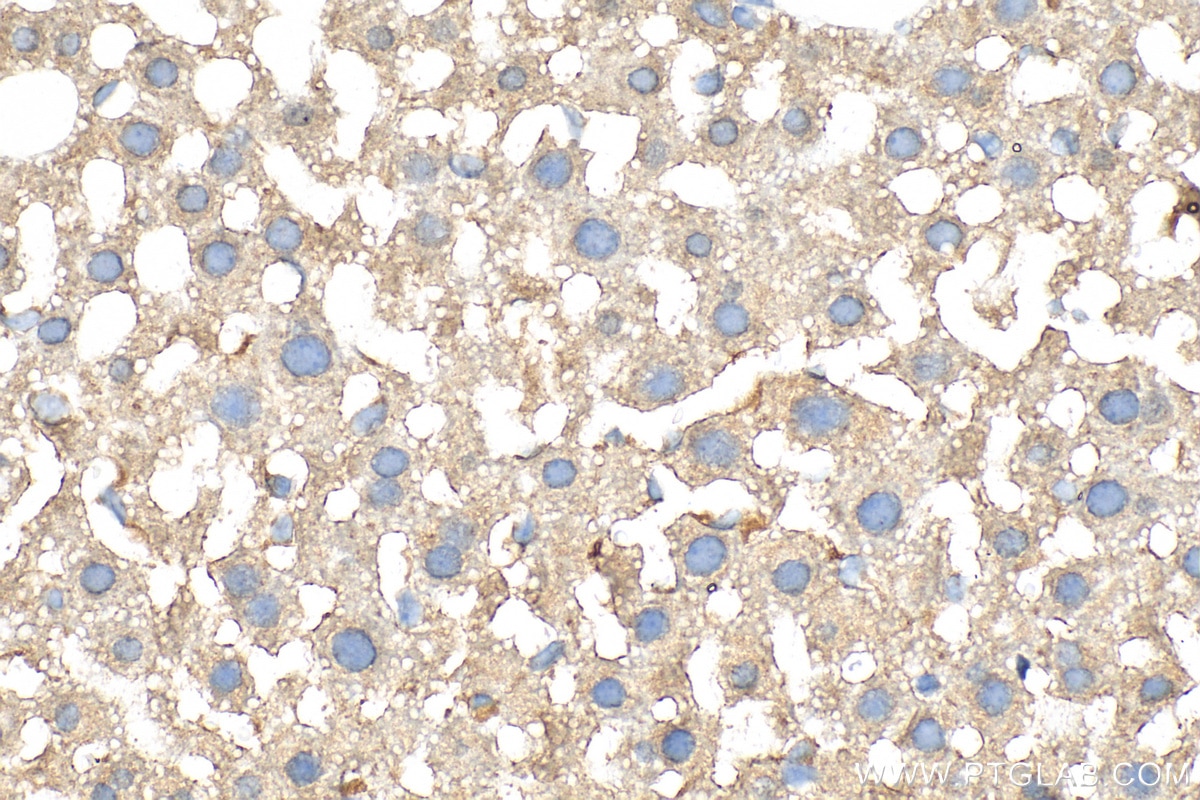Anticorps Polyclonal de lapin anti-IGF1
IGF1 Polyclonal Antibody for IHC, ELISA
Hôte / Isotype
Lapin / IgG
Réactivité testée
Humain, souris et plus (1)
Applications
WB, IHC, IF, Cell treatment, ELISA
Conjugaison
Non conjugué
N° de cat : 28530-1-AP
Synonymes
Galerie de données de validation
Applications testées
| Résultats positifs en IHC | tissu hépatique humain, tissu hépatique de souris, tissu rénal de souris il est suggéré de démasquer l'antigène avec un tampon de TE buffer pH 9.0; (*) À défaut, 'le démasquage de l'antigène peut être 'effectué avec un tampon citrate pH 6,0. |
Dilution recommandée
| Application | Dilution |
|---|---|
| Immunohistochimie (IHC) | IHC : 1:50-1:500 |
| It is recommended that this reagent should be titrated in each testing system to obtain optimal results. | |
| Sample-dependent, check data in validation data gallery | |
Applications publiées
| WB | See 15 publications below |
| IHC | See 4 publications below |
| IF | See 1 publications below |
Informations sur le produit
28530-1-AP cible IGF1 dans les applications de WB, IHC, IF, Cell treatment, ELISA et montre une réactivité avec des échantillons Humain, souris
| Réactivité | Humain, souris |
| Réactivité citée | rat, Humain, souris |
| Hôte / Isotype | Lapin / IgG |
| Clonalité | Polyclonal |
| Type | Anticorps |
| Immunogène | IGF1 Protéine recombinante Ag29197 |
| Nom complet | insulin-like growth factor 1 (somatomedin C) |
| Masse moléculaire calculée | 22 kDa |
| Numéro d’acquisition GenBank | NM_001111285.2 |
| Symbole du gène | IGF1 |
| Identification du gène (NCBI) | 3479 |
| Conjugaison | Non conjugué |
| Forme | Liquide |
| Méthode de purification | Purification par affinité contre l'antigène |
| Tampon de stockage | PBS avec azoture de sodium à 0,02 % et glycérol à 50 % pH 7,3 |
| Conditions de stockage | Stocker à -20°C. Stable pendant un an après l'expédition. L'aliquotage n'est pas nécessaire pour le stockage à -20oC Les 20ul contiennent 0,1% de BSA. |
Informations générales
IGF1, also named as IBP1, MGF, IGF-IA, and Somatomedin-C, belongs to the INS family. IGF1 is structurally and functionally related to INS but has a much higher growth-promoting activity. Altered expression or mutation of IGF-1 is associated with several human disorders, including type I diabetes and various forms of cancer. Defects in IGF1 are the cause of INS-like growth factor I deficiency (IGF1 deficiency) which is an autosomal recessive disorder characterized by growth retardation, sensorineural deafness, and mental retardation.
Protocole
| Product Specific Protocols | |
|---|---|
| IHC protocol for IGF1 antibody 28530-1-AP | Download protocol |
| Standard Protocols | |
|---|---|
| Click here to view our Standard Protocols |
Publications
| Species | Application | Title |
|---|---|---|
Cancer Lett Small extracellular vesicle-bound vascular endothelial growth factor secreted by carcinoma-associated fibroblasts promotes angiogenesis in a bevacizumab-resistant manner. | ||
Metabolism Arginine reverses growth hormone resistance through the inhibition of toll-like receptor 4-mediated inflammatory pathway. | ||
Mol Nutr Food Res Milk Polar Lipids Supplementation to Obese Rats During Pregnancy and Lactation Benefited Skeletal Outcomes of Male Offspring. | ||
Int J Biol Sci Tubule-mitophagic secretion of SerpinG1 reprograms macrophages to instruct anti-septic acute kidney injury efficacy of high-dose ascorbate mediated by NRF2 transactivation | ||
Biomed Pharmacother Low-dose X-ray irradiation combined with FAK inhibitors improves the immune microenvironment and confers sensitivity to radiotherapy in pancreatic cancer. | ||
Biochem Cell Biol Mechanism of myocardial fibrosis regulation by IGF-1R in atrial fibrillation through the PI3K/Akt/FoxO3a pathway |
Avis
The reviews below have been submitted by verified Proteintech customers who received an incentive forproviding their feedback.
FH Hongxue (Verified Customer) (01-17-2023) | IHC staining for mouse liver, works well.
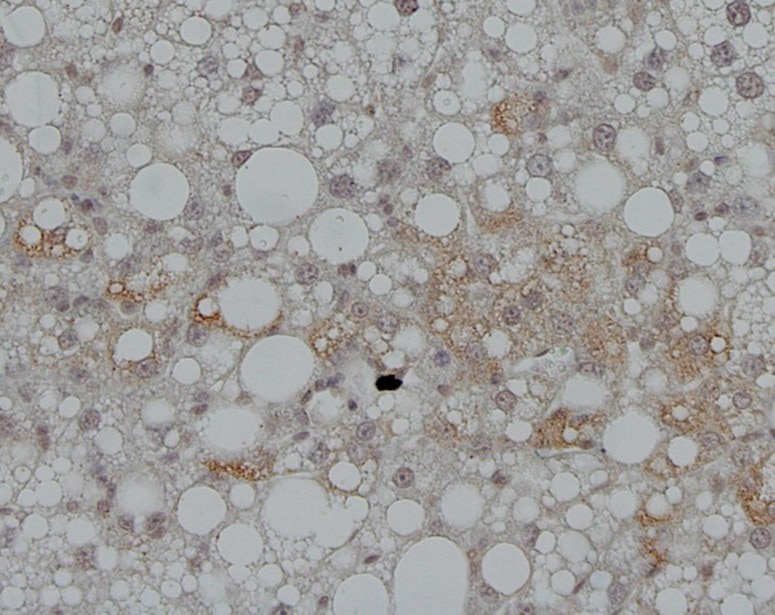 |
